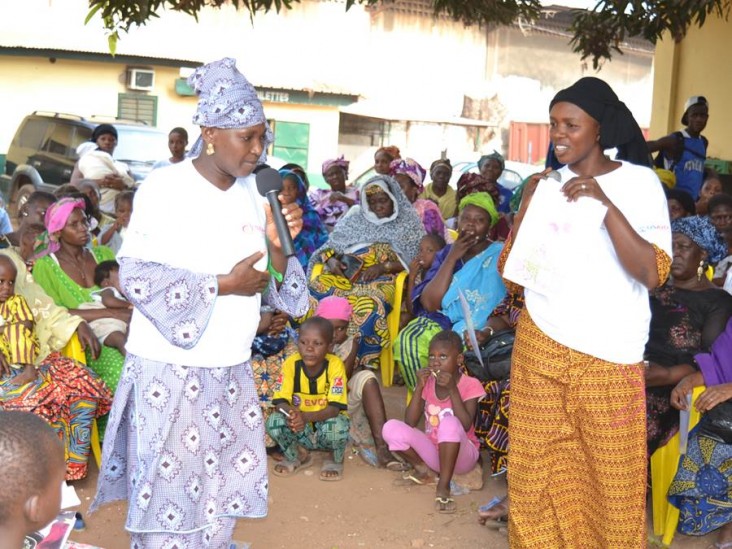
Guinea launched its democratic transition swearing in its first freely elected president in December 2010 followed by legislative elections on September 2013. To sustain these democratic gains and ensure a more credible and accountable rounds of elections (presidential and local), USAID through the Consortium for Elections and Political Process Strengthening launched an activity aimed at purpose reinforcing the capacity of Guinea’s election stakeholders such as the Independent National Electoral Commission (CENI) and empowering civil society organizations to effectively conduct domestic election observation and monitoring. In addition, with USAID assistance, Search for Common Ground targeted conflict mitigation not only during presidential and local elections but also during the Ebola crisis by delivering key messages and accurate news reporting to rebuild trust within communities and public health facilities. USAID is committed to accelerating post-Ebola recovery efforts for the next two years with a special focus on increasing civic engagement in health governance.
Elections and Political Process and Legislative Strengthening
USAID continues to support Guinea’s nascent democracy through increased assistance to build the organizational capacities of political parties so they can be inclusive and issue-based. With the contentious political environment, USAID has elevated its support. The overall goal of the project is to support public dialogue and engagement around Guinea’s elections in order to promote transparent, participatory, peaceful and credible elections. The specific objectives are to: 1) promote political dialogue and build consensus around peaceful and legitimate electoral processes, 2) strengthen a political party system, 3) expand civic and voter education, 4) enhance citizen engagement in and oversight of election systems, processes and management, 5) establish conflict early warning/early response mechanisms and processes and 6) strengthen the CENI.
In promoting the checks and balance mechanism, the Mission will continue to provide support to the legislative branch in order to enhance policy reforms and lawmaking and reinforce parliament’s oversight of the Executive in the health sector. Activities will include: consensus-building through open dialogue, convening of public fora or “town halls” between legislators and constituents (on Ebola, recovery and resilience, etc.), providing technical assistance to the Parliamentary Committee on Health and Social Welfare (on Ebola policy, government response oversight, health system strengthening, etc.), supporting Legislative Committees oversight functions, giving technical assistance to legislators and local government on public accountability and oversight to ensure quality service delivery to Ebola survivors. USAID will train of parliamentarians and y staff on public (health) budget formulation, public revenue generation and oversight of expenditures to actively leverage activities aiming at health behavior change communications and civil society strengthening.
Cultural Cohesion for Peace and Prosperity Project
USAID's Cultural Cohesion for Peace and Prosperity project (C2P2) supports Guinea’s civil society to strengthen social cohesion within and across ethnic groups by engaging opinion leaders in promoting tolerance and fostering women’s contribution to political reconciliation and peaceful coexistences USAID Conflict Mitigation and Management interventions will specifically target the use of traditional conflict resolution mechanisms and increase access and role of the media, develop peace building messages during elections and foster collaboration among local elected leaders, authorities and opinion leaders to identify conflict triggers.
Internal Debt Management
Guinea has made dramatic improvements in macroeconomic governance and public financial management since the transition to democratic rule in December 2010. As a result, the nation was formally approved for billions of dollars in debt relief under the World Bank’ Highly Indebted Poor Country program. USAID is currently supporting these important efforts to increase fiscal transparency by collaborating with the US Treasury to provide internal debt issuance and management advisory services to the Government of Guinea. The activity will focus on helping Ministry officials manage their internal debt and revenue more strategically. Specific areas of focus will be to continue improving tracking and planning of internal debt, development of new, longer term local currency debt instruments and helping establish an interbank lending facility; for revenue management, the goal will be to put in place procedures and policies that ensure prompt and reliable collections.








Comment
Make a general inquiry or suggest an improvement.